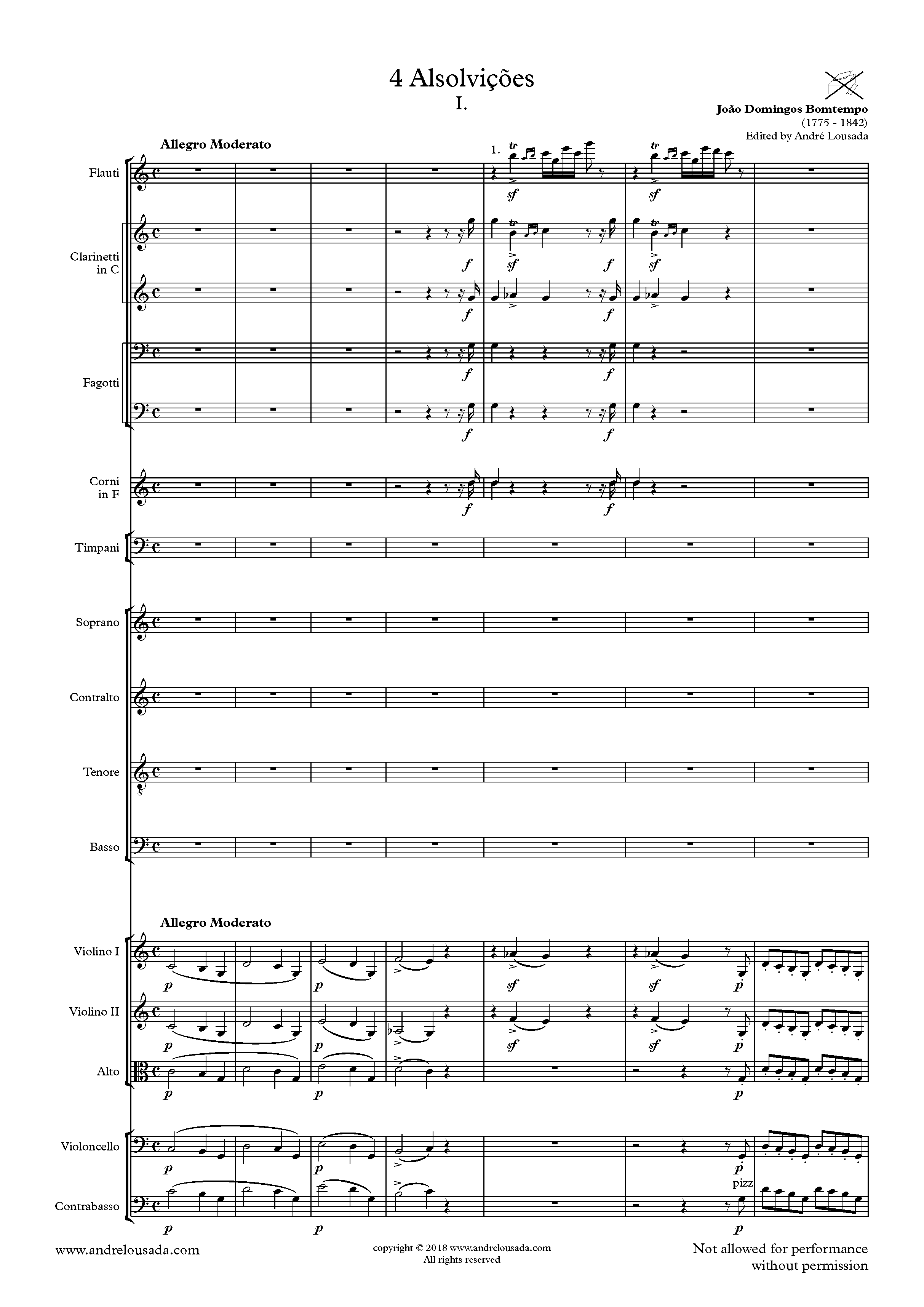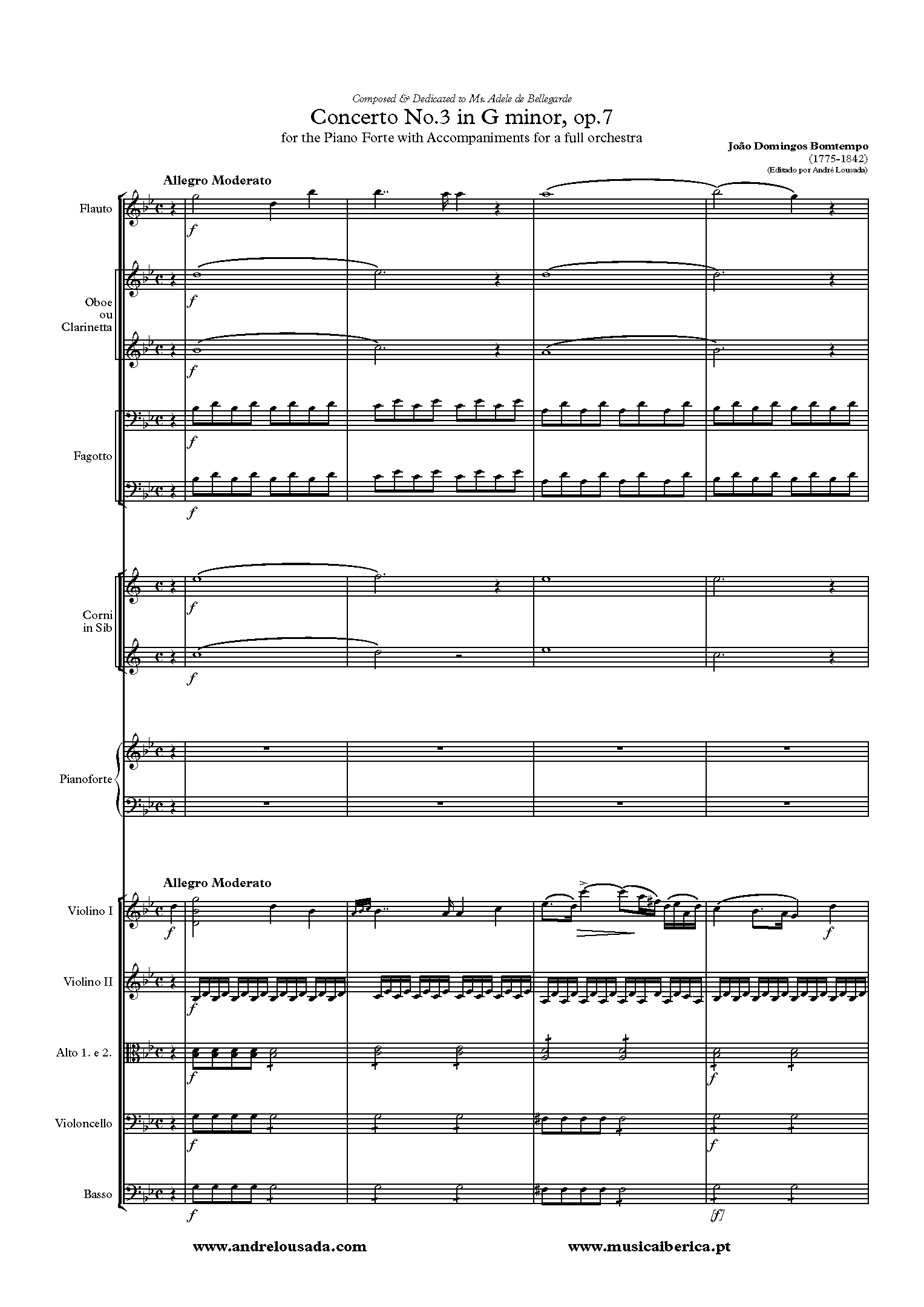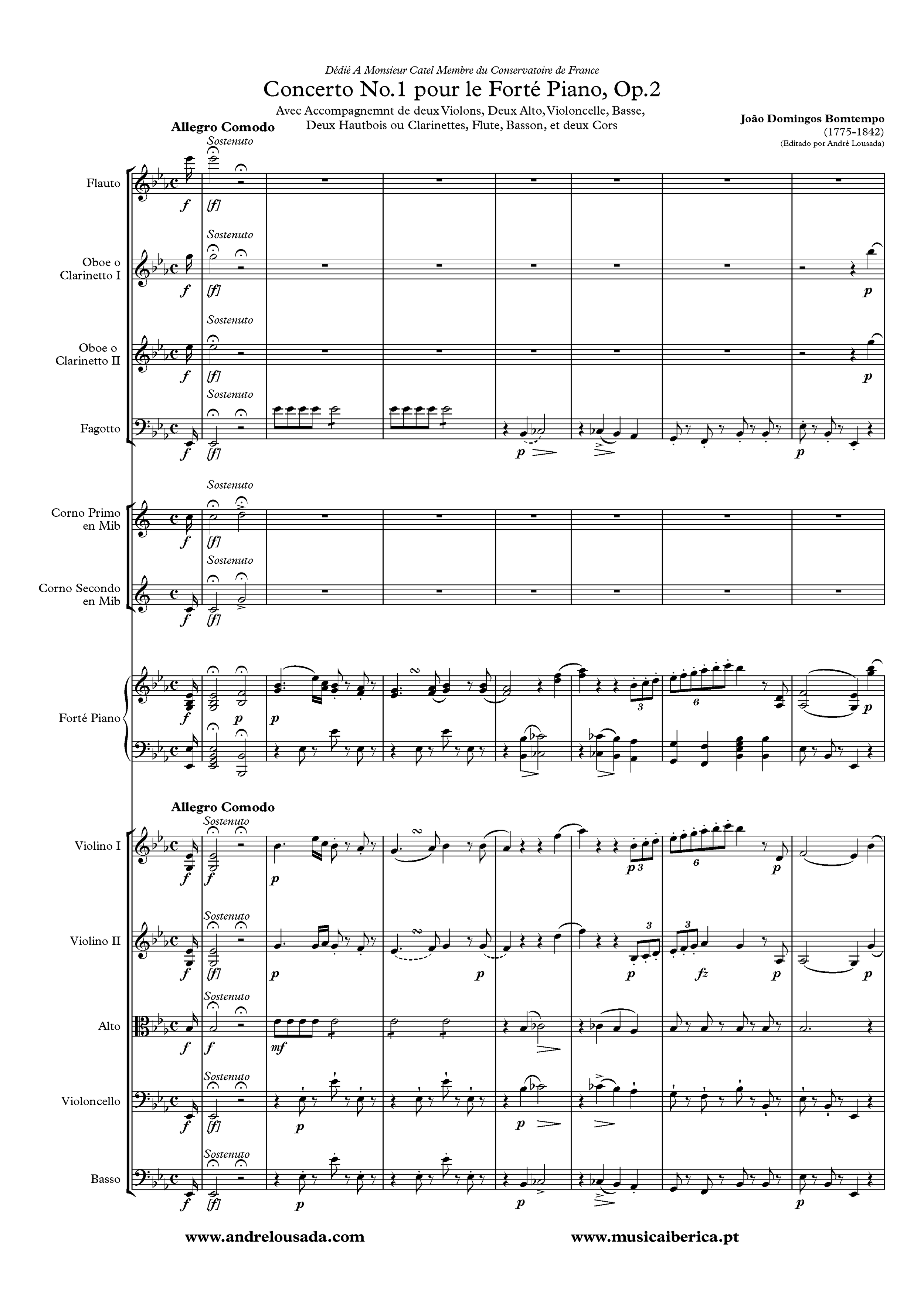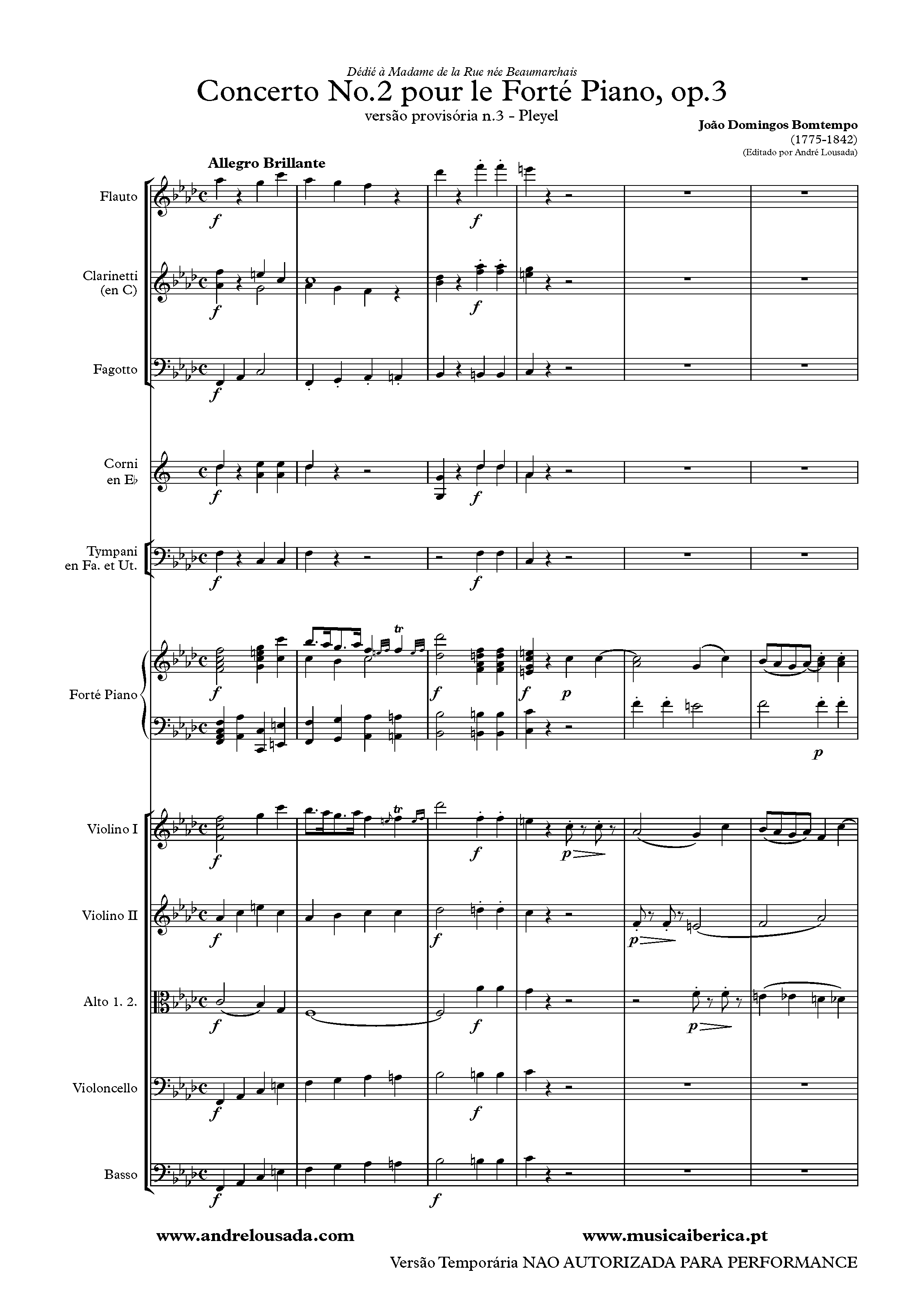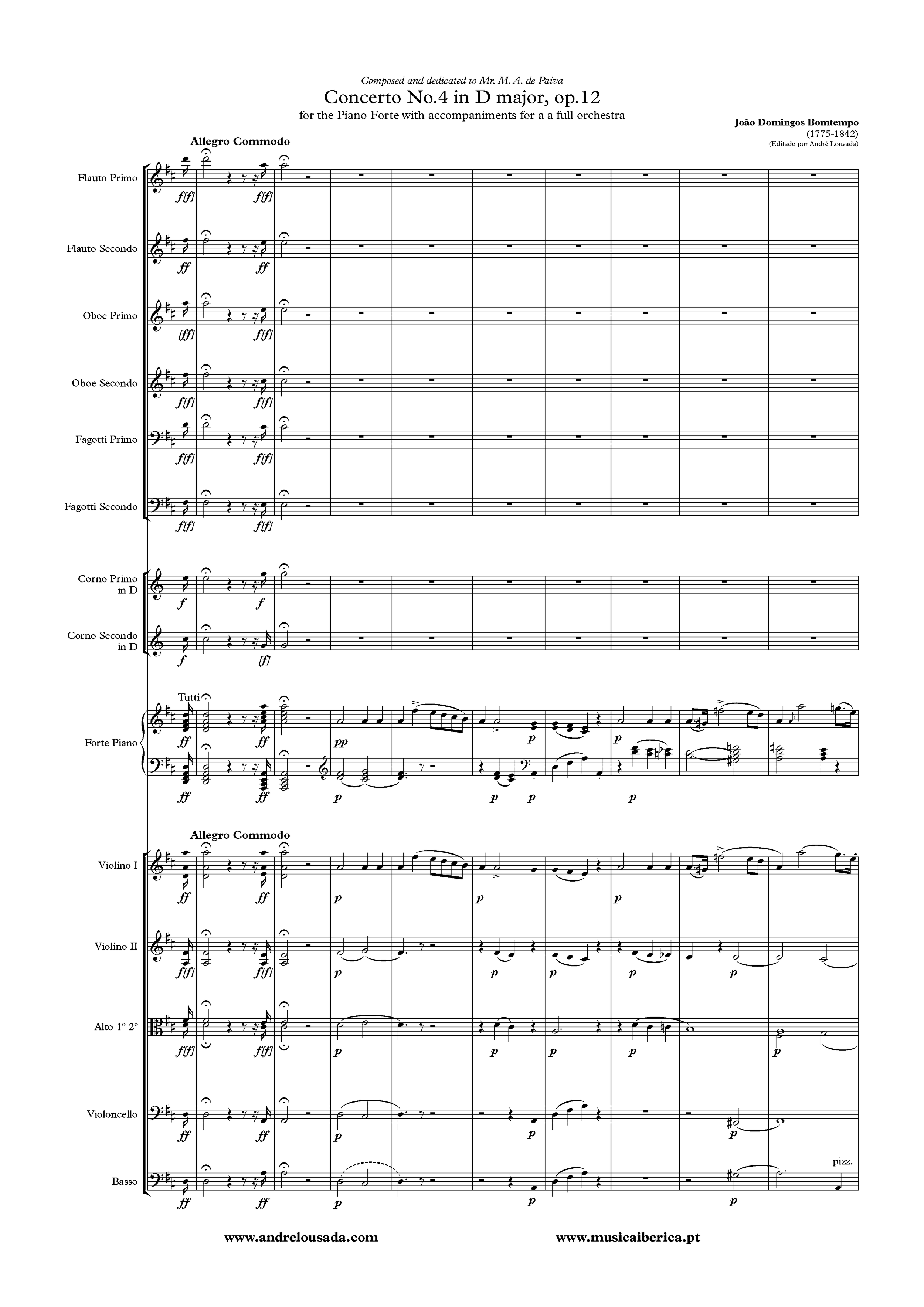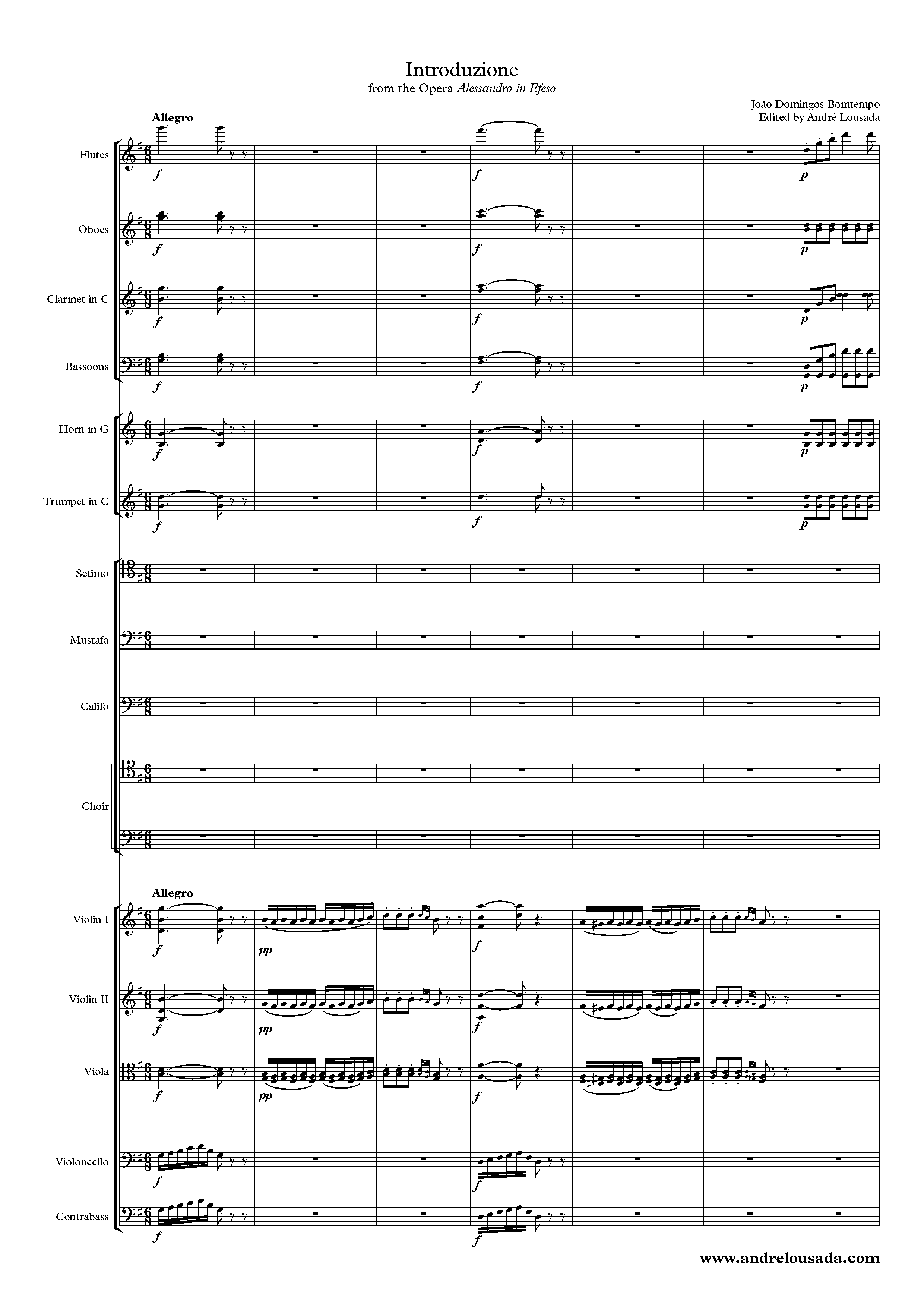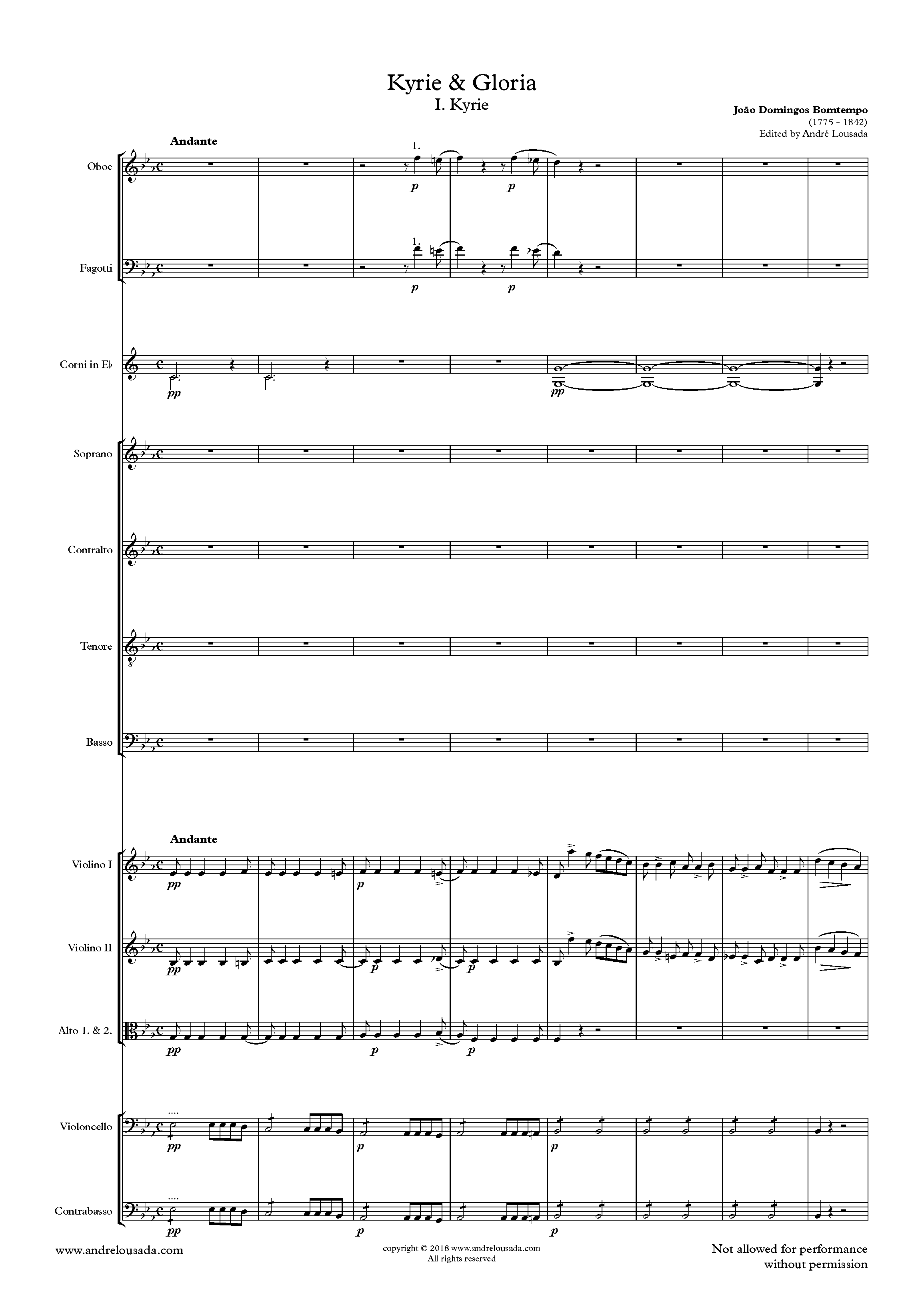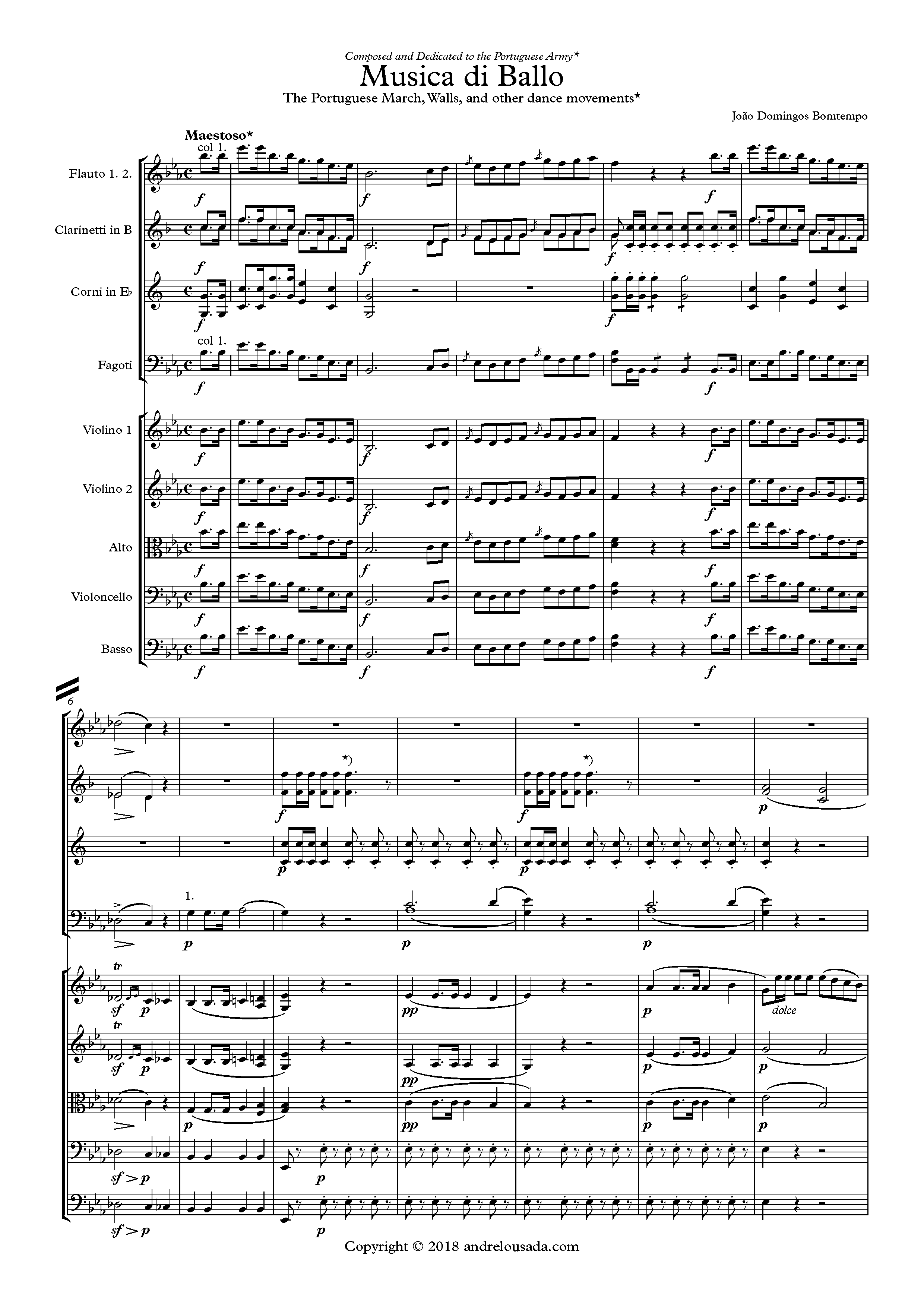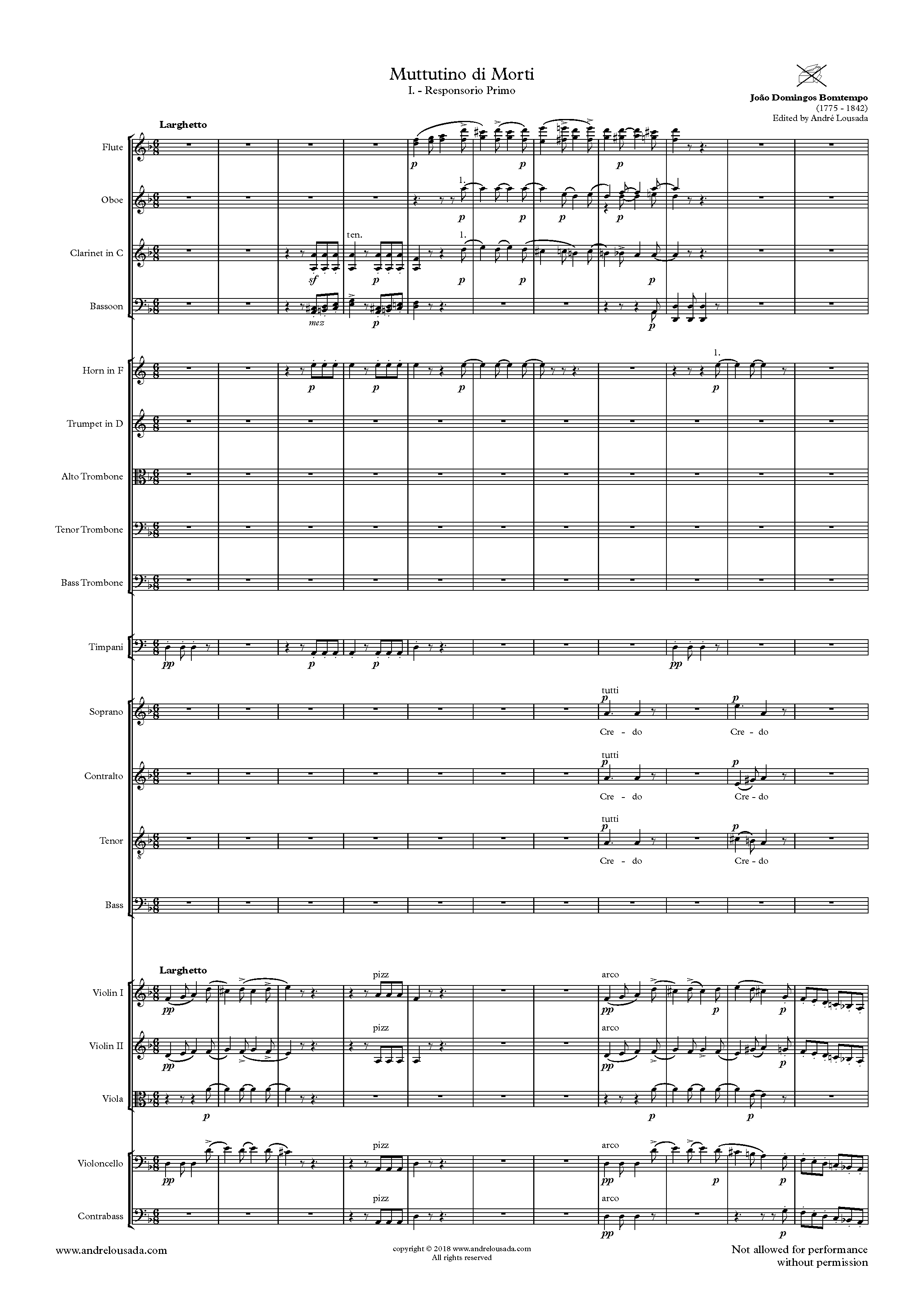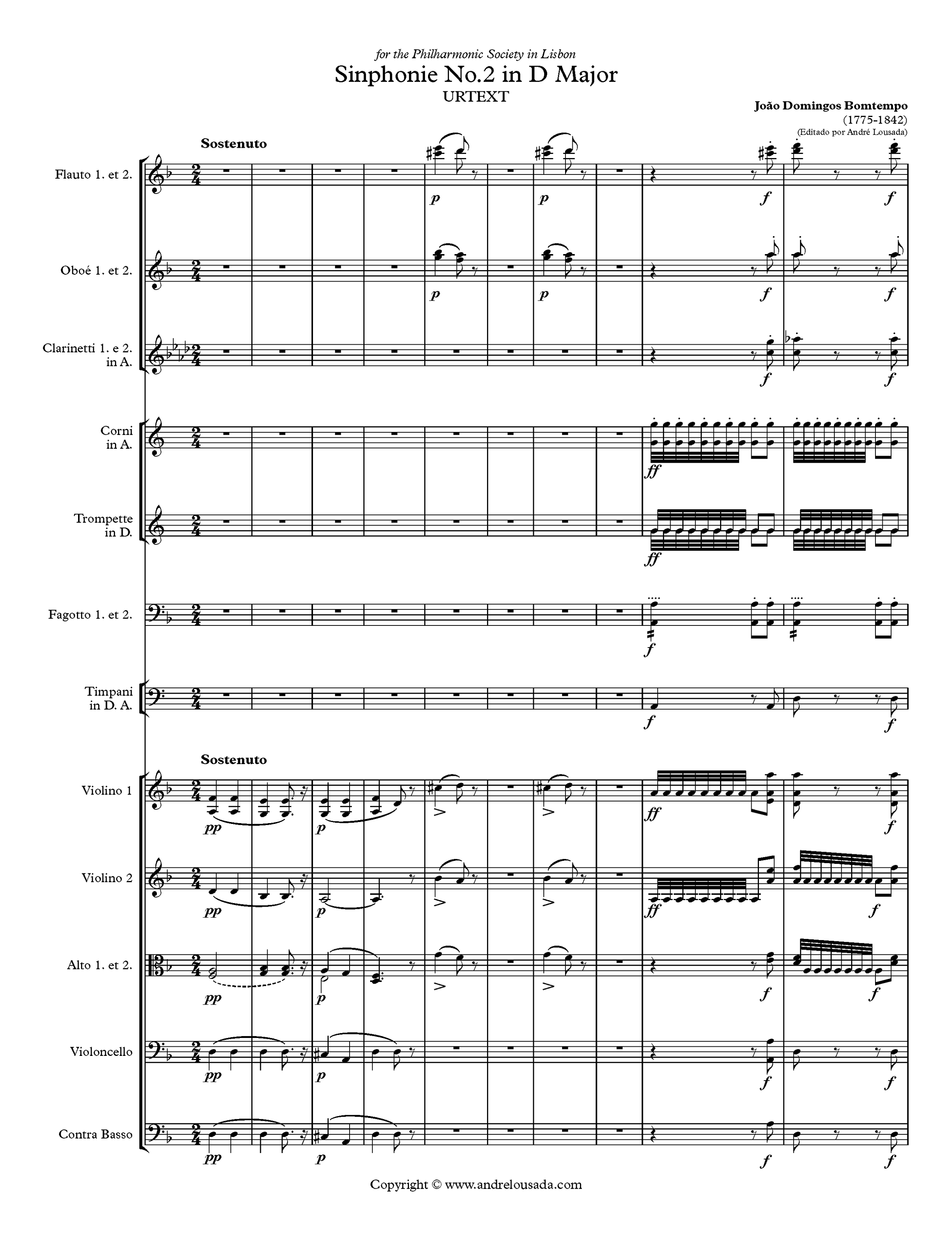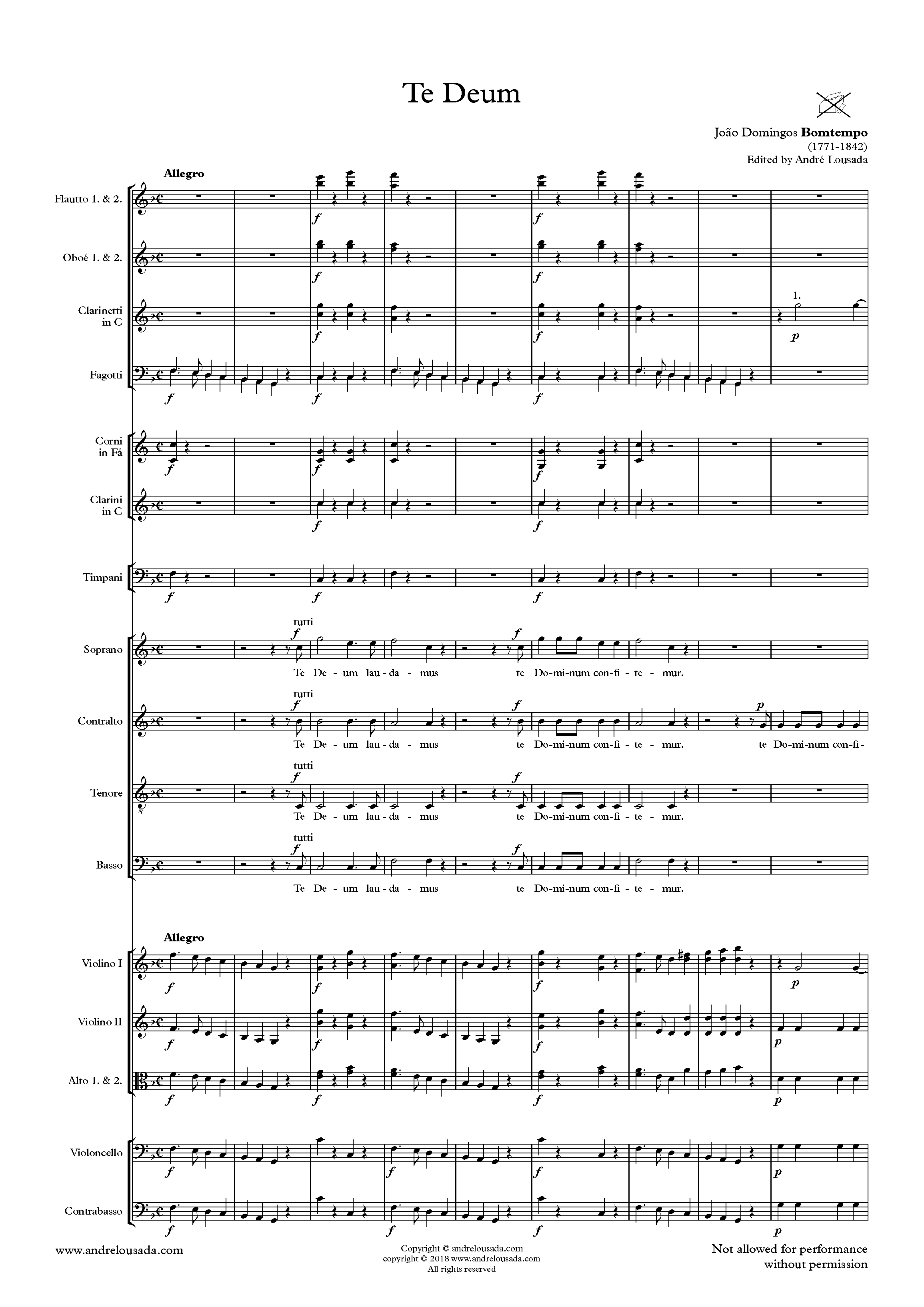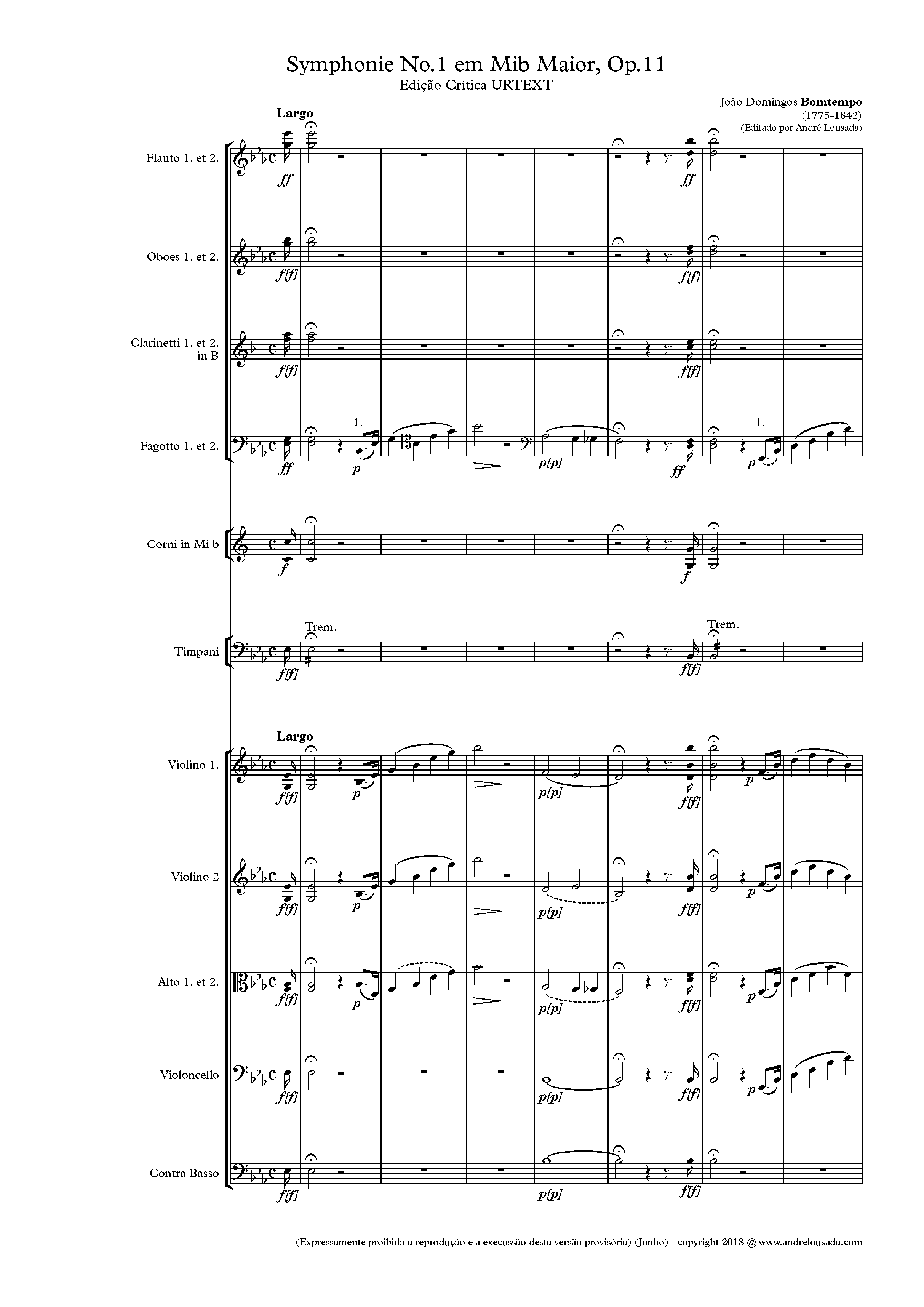João Domingos Bomtempo
“Bomtempo, the Portuguese Beethoven?”
Why is Bomtempo important?
Considered by many, the "Portuguese Beethoven", he is the most important Portuguese composer of the classical period. Bomtempo is a composer that deserves to be celebrated, not only for the impact that had in the Portuguese musical history, but also for his unique compositional style that we can see specially in his later works.
As strange as it may be, many of Bomtempo ́s compositions where still unpublished, which had made almost impossible the diffusion and performance of his music on international stages. Ergo, my pledge and commitment to change this reality.
His music has simultaneously the joy and charme from the viennese classical style and the emotional temperament of the emerging romantic era. Very often it's associated with an interpretative style closer to Haydn, with homogenous textures and well rounded attacks.
However, after having revised all of his manuscripts from his orchestral works, I dare to state that his music has a unique style that must not be confused or interpreted as, the music of Haydn, Mozart, or Beethoven just because these are the most prominent figures of the Classical Style.
His music has, in fact, similar elements, and a grammar reminiscent of these composers mentioned earlier, but his style is his own alone: The style of Bomtempo.
João Domingos Bomtempo studied in Paris and London, where he initiated his career as Concert Pianist. Later in Portugal he became Director of the Nacional Conservatory, and inspired by the Royal Philharmonic society in London, he founded the Sociedade Filarmónica in Lisbon.
His orchestral works, available through my editions:
Symphony No.1 - (Critical Edition)
Symphony No.2 - (Critical Edition)
Symphony in one movement - (Critical Edition)
Preparatory - Overture (Critical Edition)
March from “Musica di Ballo”- (Critical Edition)
Waltz from “Musica di Ballo” - (Critical Edition)
March for Orchestra
Piano Concerto No.1 in Eb Major, op.2 - (Critical Edition)
Piano Concerto No.2 in F minor, op.3 - (Critical Edition)
Piano Concerto No.3 in G minor, op.7 - (Critical Edition)
Piano Concerto No.4 in D Major, op.12 - (Critical Edition)
Piano Concerto No.6 (first movement) - (Critical Edition)
The Great Fantasia in D for Piano and Orquestra - (Critical Edition)
Great variations over a Rossini Theme - (Critical Edition)
Requiem
Libera-me (v. 1842)
4 Absolutions - (Critical Edition)
Matuttino di Morti
Credo (Missa Brevis) - (Critical Edition)
Kyrie and Gloria
Mass in F Major (for choir, 2 horns and strings)
Te Deum
Tantum Ergo for small orchestra (Critical Edition)
Hymn Lusitano

